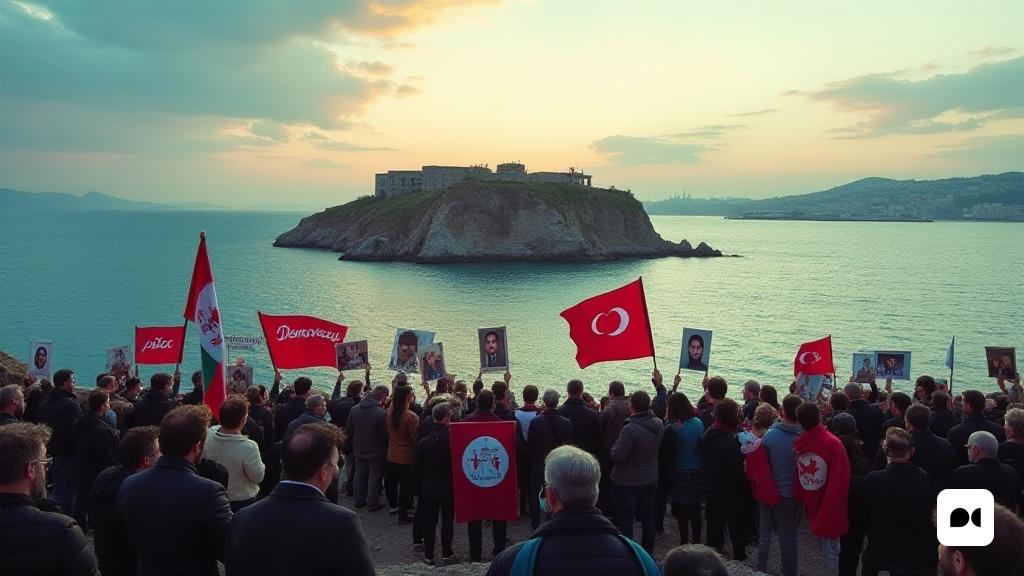A decisive moment for the Kurdish movement
On February 27, 2025, Abdullah Öcalan, leader of the Kurdish liberation movement and imprisoned since 1999, issued a significant statement since his cell on the island of Imrali. His ‘call for peace and a democratic society’ has generated debate and controversy, with many wondering if he represents a surrender after more than five decades of struggle.
Origins of the Kurdistan Workers’ Party
Founded in 1978, the Kurdistan Workers’ Party (PKK) was born in a context of Turkish state repression against the Kurdish population. Inspired by anti -colonial movements, the PKK started a guerrilla war in 1984 with the aim of creating a Kurdish state that supplied the Kurdish areas of Turkey, Syria, Iraq and Iran.
Evolution of their ideology
Over time, especially after the fall of the USSR, the PKK began to rethink its vision, leaving the idea of an independent state to explore alternatives of self -determination. Öcalan, since his imprisonment, proposed a model of democratic confederalism that promotes the inclusion of various ethnicities and the centrality of female liberation.
The impact of the Dema Parti on Kurdish policy
The Dem Parti, as a political branch of the PKK, has played a key role in the Kurdish struggle, organizing to participate in the Turkish electoral system and defend the rights of Kurds. With a story marked by state repression, this party has undergone constant changes in name and structure, but it is still a key player in Turkish politics.
The role of repression
The persecution of leaders and activists has been constant, with the Democratic Party of the Peoples (HDP) recently restructuring to survive the repression of the Turkish government. The Dema Parti has become a bridge between PKK and civil society, facilitating communication and negotiation with other parties.
The peace process: hopes and disenchantments
In 2012, a peace process between Turkey and the PKK began, with the aim of solving the Kurdish issue through dialogue. However, this effort was truncated in 2015 by Erdogan’s offensive, which failed negotiations. Violence and repression were intensified, increasing tensions between the two parties.
The consequences of violence
The Kurdish movement killings and events in Rojava deeply marked the context of the failure of the peace process. The reaction of the Turkish government to the Revolution in Rojava greatly influenced Turkish internal policy.
The future of the Kurdish movement
With the recent call of Öcalan, the Kurdish movement seeks to revitalize the dialogue with the Turkish government, although the message has led to confusion. The demand for the dissolution of the PKK, without mention of the Turkish government, has led to an internal debate on the future leadership of the movement.
Conditions for a new agreement
The movement has established clear conditions for its disposition to dialogue, including the recognition of the role of Öcalan and the improvement of its detention conditions, as well as the recognition of the Kurdish language and culture within a new Turkish constitutional framework.
A message beyond borders
Öcalan’s proposal not only seeks benefits for the Kurds, but also seeks to establish a democratic model that can inspire other nations in the Middle East. In a complex regional context, the Kurdish movement aspires to be an example of coexistence and diversity.
A path full of uncertainty
The coming weeks will be crucial to determine if the Turkish government is ready to make real concessions and if the PKK can maintain its influence on a changing scenario. The mobilization of the Kurdish people will be essential to move towards a fairer and more inclusive future.

